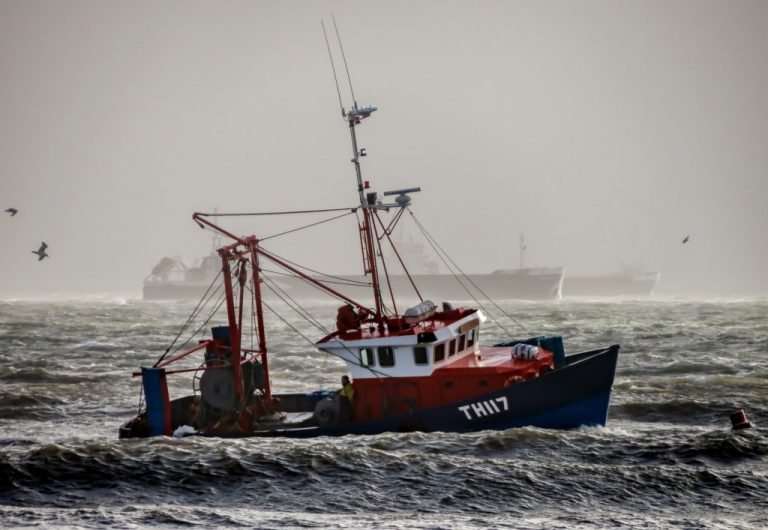
Credit: Ray Harrington on Unsplash
By 2030, when United Nations Sustainable Development Goals should be met, 23 per cent of these ‘transboundary’ fish stocks will have changed their historical habitat range. The modeling study also projected 78 per cent of exclusive economic zones (EEZs)—where most fishing occurs—will see at least one shifting fish stock. By 2100, this climbs to 45 per cent of stocks, with 81 per cent of EEZs seeing at least one stock shift if nothing is done to halt greenhouse gas emissions
“This is not only an issue of stocks leaving or arriving to new EEZs, but of stocks that are shared between countries, completely changing their dynamics,” said lead author Dr. Juliano Palacios-Abrantes, who conducted the study while at UBC’s Institute for the Oceans and Fisheries (IOF). Now a postdoctoral researcher at the University of Wisconsin-Madison, he said the study provides a timeline suggesting these shifts had already been underway since the beginning of the 21st century. “We will see even more dramatic changes by 2030 and onwards, given current emissions rates. Many of the fisheries management agreements made to regulate shared stocks were established in past decades, with rules that apply to a world situation that is not the same as today.”
The study tracked the shifting ranges of 9,132 transboundary fish stocks, which account for 80 per cent of catch taken from the world’s EEZs, starting in 2006 and projecting to the year 2100.
Changes in stocks’ distribution will affect catches. By 2030, 85 per cent of the world’s EEZs will have seen a change in the amount of their transboundary catch that exceeds normal yearly variation. It is a shift that Dr. Palacios-Abrantes expects will raise tensions over which countries can claim majority ownership of certain stocks, particularly given that between 2005 and 2010, fishing of transboundary species in total netted an estimated US$76 billion in revenue.
In the 1980s and 1990s, a shift in the distribution of various salmon stocks disrupted fishing agreements between Canada and the U.S. and contributed to the overfishing problems of these stocks. Such conflicts will be magnified in the future, and may collapse international agreements, Dr. Palacios-Abrantes said.
Countries in tropical locations such as the Caribbean and South Asia will be hit first as water temperatures increase, but northern countries will also be affected. Overall, 10 shared stocks in Canada and the U.S. Pacific are projected to shift by 2033.
“By providing estimates of the size and timing of projected shifts, our study offers tangible reference points around which to consider climate change impacts and negotiate fair policies for sustainable management,” said co-author Dr. Colette Wabnitz (she/her), lead scientist at Stanford’s Center for Ocean Solutions and IOF research associate.
The study makes a number of suggestions to avoid the worst outcomes from potential disputes, such as crafting agreements that allow fishing fleets to fish in neighbouring countries’ waters while offering a share of the catch or profit.
It will also require rebalancing and renegotiating many of the catch quota agreements that are already in place. And any action on mitigating climate change should help reduce projected shifts, the authors say.
“We must accept that climate change is happening, and then move fast enough to adapt fisheries management regulations to account for it,” said co-author Dr. Gabriel Reygondeau, a research associate at IOF.
This means that countries must be willing to work with one another to prevent potential conflict due to species climate shift and keep the industry profitable and sustainable, he said. “We evaluated where the potential shift and conflict could emerge and when it’s going to happen following climate models and scenarios. At some point, scientists cannot help more and the question becomes: does politics want to deal with climate change effects on primary resources and production now?”
The study ‘Timing and magnitude of climate driven range shifts in transboundary fish stocks challenge their management’ was published in the journal Global Change Biology.
Tags: climate change, Colette Wabnitz, CORU, fish stocks, Gabriel Reygondeau, IOF Research Associates, Juliano Palacios-Abrantes, Research, William Cheung